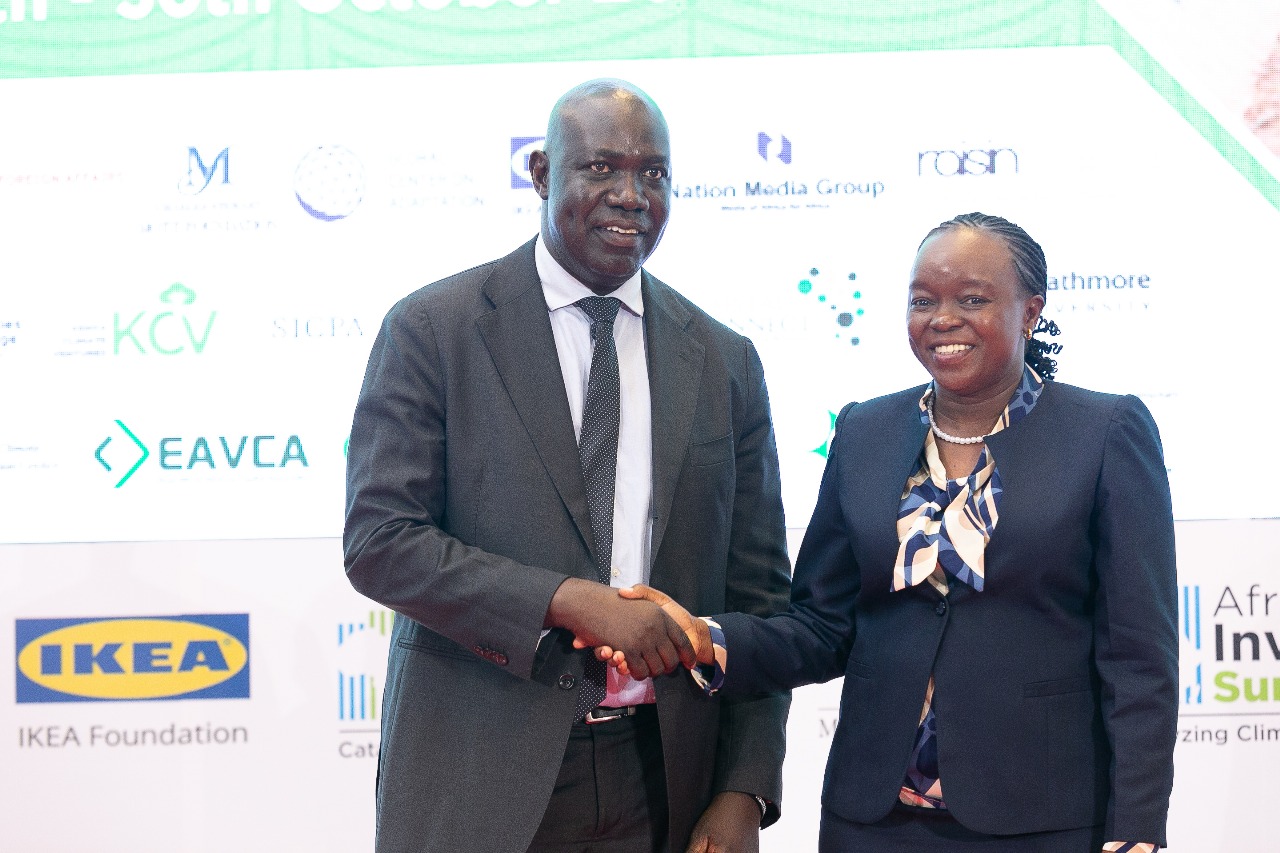Nairobi, Kenya — October 28, 2025. African leaders, ministers, development partners, and innovators gathered today at The Edge Convention Center, Nairobi, for the opening of the Africa Climate Investment Summit (ACIS 2025), hosted by the Kenya Climate Innovation Center (KCIC). Themed “Unlocking African Investments into the Green Economy,” the event marked the official launch of the Africa Climate Investment Platform, a continental initiative designed to mobilize capital, build partnerships, and scale climate-smart enterprises across Africa.
The opening brought together over 100 senior decision-makers, including ambassadors from Ghana, Nigeria, and South Africa, representatives from the World Bank, the Foreign, Commonwealth and Development Office (FCDO), and the Swiss Embassy. Their presence reaffirmed strong international collaboration toward Africa’s green growth ambitions.
The Guest of Honour, Hon. Dr. Deborah Mlong’o Barasa, EGH, Cabinet Secretary, Ministry of Environment, Climate Change and Forestry, opened the summit with an inspiring address that underscored Kenya’s leadership and Africa’s collective resolve to drive a homegrown green transformation.
“It is my honour, as the Cabinet Secretary in the Ministry of Environment, Climate Change and Forestry, to join you today in this very important conference that acts as a continental platform designed to mobilise capital, build partnerships and scale climate-smart enterprises across Africa. On behalf of the Government of Kenya and the Ministry, I welcome you all to Nairobi—Africa’s vibrant green capital—for the second Africa Climate Investment Summit,” she said.
Dr. Barasa commended the Kenya Climate Innovation Center for convening the summit and emphasized the importance of addressing Africa’s climate finance gap. She noted that while the continent is richly endowed with solar, wind, and natural resources, access to climate finance remains limited, inequitable, and often debt-creating. “In Africa, climate finance has become both the key to and a barrier against investments and climate action. Finance is insufficient, inequitably distributed, and often debt-creating. Access is slow and complex, and domestic mobilisation is weak,” she observed.
She reaffirmed Kenya’s commitment to positioning itself as a global hub for climate action under the visionary leadership of the President, aligning efforts with the Bottom-Up Economic Transformation Agenda (BETA). “We understand, as Professor Wangari Maathai taught us, that the environment and the economy are two sides of the same coin. A healthy environment is the bedrock of a prosperous economy,” she stated.
Dr. Barasa highlighted that Kenya’s Second Nationally Determined Contribution (NDC) for 2031–2035 requires an estimated USD 62 billion for full implementation. The government has committed to mobilizing 19% of this amount domestically, with the remaining USD 45 billion presented as a bankable opportunity for private sector investors. She further outlined the government’s progress in creating an enabling environment for investors, including the finalization of the Climate Change (Carbon Trading) Regulations, 2025, and policies to promote green bonds and innovative financing mechanisms.
“Our message to the global investment community is clear and unwavering: Kenya is open for green business. We have policy certainty and regulatory stability,” she affirmed.
In her closing remarks, Dr. Barasa called for collaboration among investors, innovators, and development partners to close Africa’s climate finance gap. She urged investors to look beyond outdated perceptions of risk and see Africa as the world’s most promising emerging market for green investments. She commended African innovators as the “heart of the summit,” encouraging them to continue building solutions that create high-value jobs and drive sustainable transformation. To development partners, she appealed for greater support in de-risking investments and refining blended finance models that can unlock large-scale private capital.
“Let this summit be the moment we begin to build the financial architecture for a new, green Africa,” she concluded. “Let it be defined not by speeches, but by deals sealed. Not by pledges, but by projects funded.”
In his remarks, Joseph Murabula, CEO of KCIC, echoed the Cabinet Secretary’s call for African-driven solutions. “Africa’s green transition cannot rely solely on external financing; it must be powered by African institutions, entrepreneurs, and investors,” he said. “By unlocking local and regional capital, we are not only addressing climate challenges but building resilient economies and livelihoods.”
Edward Mungai, Group CEO of KCIC Consulting, emphasized the need to move from commitment to implementation. “Africa’s climate economy will thrive when we combine leadership with execution, translating ambition into projects, and projects into prosperity,” he noted.
Bodo Immink, Country Director of GIZ, highlighted the green economy as Africa’s next growth frontier, stressing that sustainable investment represents both an environmental necessity and an economic opportunity.
The opening of ACIS 2025 set the tone for three days of high-level dialogue and collaboration on climate-smart innovation, green financing, and cross-sector partnerships. Outcomes from the summit will shape the Africa Climate Investment Manifesto, to be presented at COP30 in Brazil, showcasing Africa’s unified vision for climate finance and resilience.
“Africa is ready to invest in its own future,” concluded Murabula. “KCIC remains committed to connecting capital with creativity and ensuring that every investment supports people, the planet, and shared prosperity.”
The Africa Climate Investment Summit 2025 delivered a clear message: Africa is no longer waiting for external solutions—it is building its own systems, partnerships, and capital pathways to power a sustainable and inclusive future.
